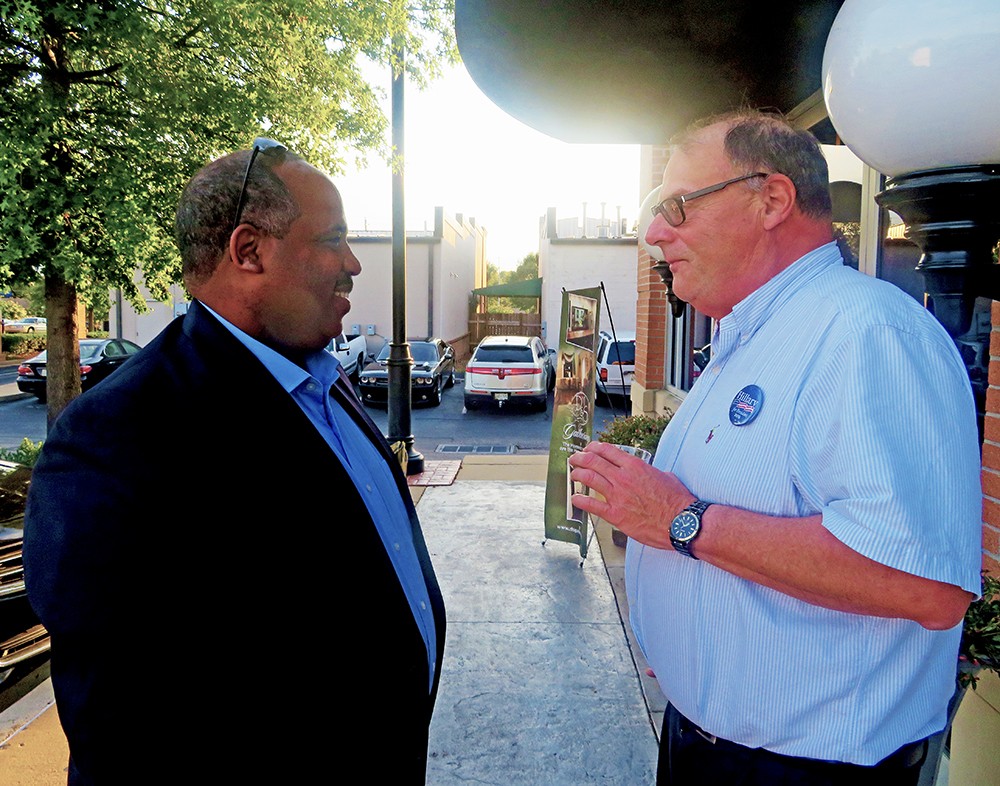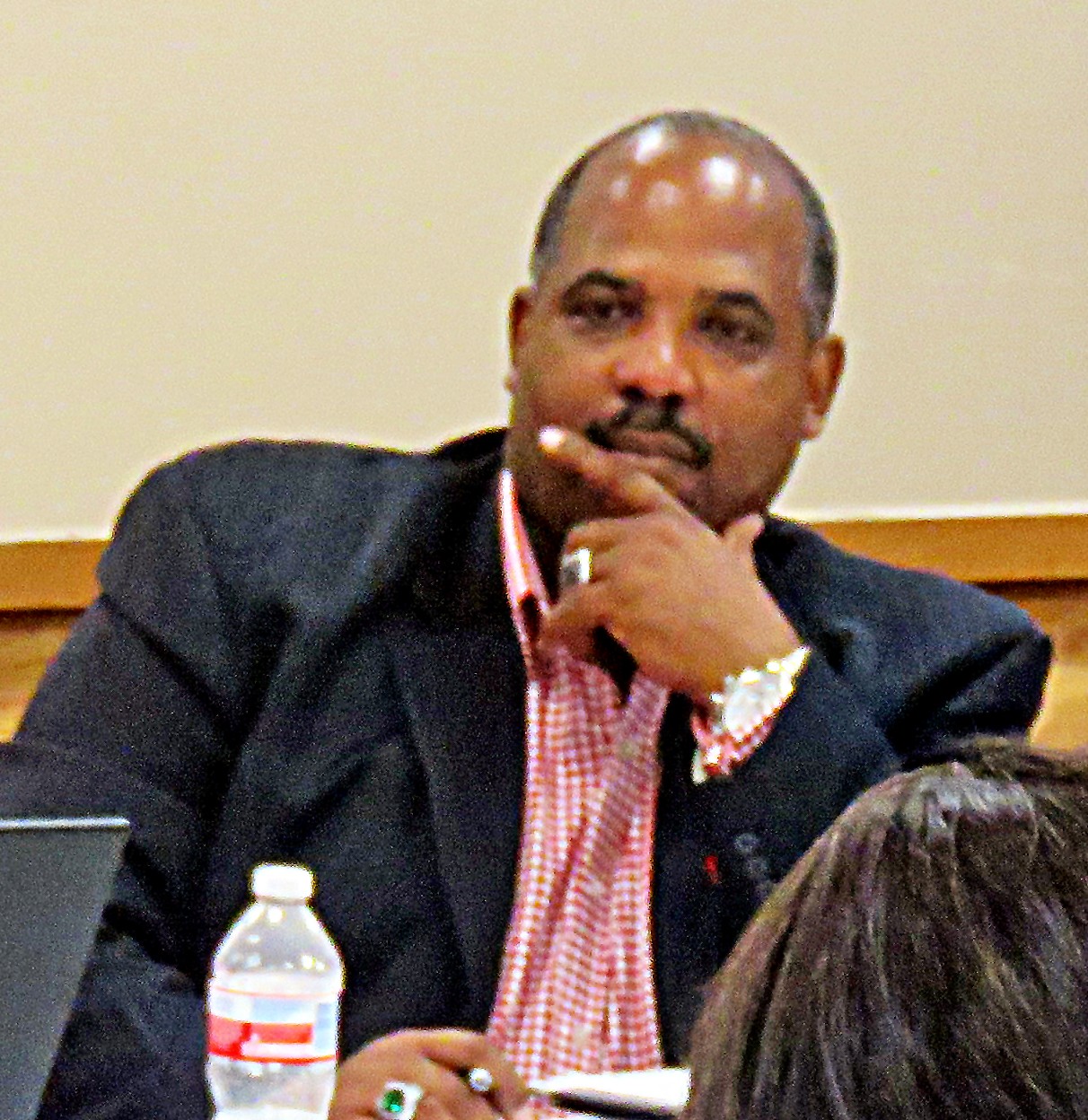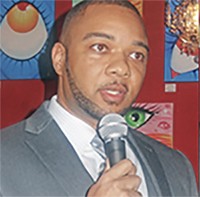
Mary Mancini
There are, as it turns out, more guaranteed circumstances than the two most often noted: death and taxes. Right up there with those two, in terms of inevitability, is the fact of discord in state and local Democratic Party ranks.
The latest instance of such is contained in a letter dispatched to members of the Shelby County Democratic executive committee from state Democratic Party chair Mary Mancini. The letter deals with the long-festering case of former local party chairman Bryan Carson, who was forced to resign by the county committee in February of 2015.
The Mancini letter, in essence, mandates the terms of a resolution of the matter by the Shelby County party and provides a short deadline for doing so.
The executive committee’s action in early 2015 came after the county party had been fined by the state Election Registry for its failure to comply with financial reporting deadlines and after Carson had been unable to account for the disposition several thousand dollars in party funds. At issue also was the fact that the chairman had apparently switched bank accounts for the party funds without express authorization by the executive committee and had made several withdrawals from ATM machines without providing receipts.
The amount of the financial discrepancy has never been determined with exact accuracy, but a preliminary audit performed by committee members at the time of Carson’s resignation estimated the unaccounted-for amount to be at least $6,000. Another ad hoc investigating group on the committee has since arrived at a higher estimate for the missing funds, in the vicinity of $25,000, but there has never been absolute agreement on the committee on the validity of either sum.
Through his attorney, Robert Spence, Carson admitted no wrongdoing but offered to settle the dispute by compensating the local party for the $6,000 sum at the rate of $100 a month. There is disagreement as to whether the full committee was ever apprised of the offer, which in any case ceased to be active.
Compounding the confusion was the fact that Carson’s elected successor as chairman, Randa Spears, as well as the local party’s first vice chair, Deidre Malone, had both abruptly resigned their positions in April, each giving the press of other obligations as the reason for their departure. The Spears-led party had meanwhile missed another financial reporting deadline for this year and had been assessed a fresh $10,000 fine by the Election Registry.
At its regularly scheduled monthly meeting on Thursday, June 2, the executive committee elected a new chairman, Sheriff’s Department Lt. Michael Pope, and acted on a motion by defeated chairmanship candidate Del Gill to prosecute Carson for embezzling the larger estimated sum. That motion passed, fairly handily, but there has been no formal action on the matter by the committee since.
All of that formed the background for the Mancini letter, dated Friday, June 24, to the Shelby County executive committee, care of chairman Pope.
Mancini’s letter begins with a citation of party bylaws and state codes that, she says, assign her “both a supervisory and organizational role over each of the county executive committees that operate throughout the state.” The letter follows with a cursory and none too indulgent recounting of the Shelby County’s ongoing problems (“many years of dysfunction,” as she puts it).
Mancini then comes to the nut of the matter, prescribing a settlement in accord with the dormant offer made to the party by Carson through his attorney:
“With a looming election that is shaping up to be of monumental importance for our state and our country, and for the health of your organization and executive committee, it is my responsibility to inform you that you must agree to the arrangement that Mr. Carson pay the amount of $6000 at $ 100 per month for 5 years and be released from any additional claims and that Chairman Pope must sign all the necessary paperwork to honor that agreement or you will no longer be in compliance with your charter issued by the Tennessee Democratic Party.”
Ironically, perhaps, Mancini had in recent months been sounded out by disgruntled party members wondering if voluntary surrender of the local party’s charter might be a feasible option. She had always answered no to such inquiries.
The deadline for “signing the necessary paperwork and forwarding it to Mr. Carson’s attorney is Friday, July 1, 2016,” Mancini concludes.
Some party members are questioning Mancini’s authority to mandate an or-else solution of this sort, while others are ready to acknowledge that she has the right. In any case, there is no pending meeting of the executive committee until the regularly scheduled one of Thursday, July 7 and thus no opportunity for a committee vote before Mancini’s deadline.
Chairman Pope, however, has indicated he is prepared to accept Mancini’s mandate, but his authority to do so without a committee authorization is questionable. To say the least, confusion persists.
• Dynamic duo: During his first several congressional terms after being elected in 2006, 9th District U.S. Representative Steve Cohen cemented an alliance with venerable Detroit congressman John Conyers (D-Michigan), who then served as House Judiciary Committee chairman and regarded the Memphis liberal, a committee member, as something of a protégé and journeyed to Memphis on Cohen’s behalf.
When the Republicans captured control of the House after the election of 2010, the Conyers-Cohen tandem was not heard from with the same intensity, but it still existed. This week, after the landmark Supreme Court decision striking down the severe restrictions on abortion clinics imposed by a Texas state law, Conyers and Cohen reasserted themselves as a duo.
In a joint press release, Conyers, in his capacity as ranking member of the Judiciary Committee and Cohen, as ranking member of the Judiciary subcommittee on the Costitutional and Civil Justice, and Cohen, hailed the Court’s decision as a reaffirmation of “the fundamental cnstitgutional right of women to make their own decisdions about their health, their bodies, their families, and their lives.”
Said the two congressmen: “The Court correctly saw the Texas law for what it was, which was an attempt to severely restrict abortion rights and not one to protect women’s health” and that the Texas law “placed such substantial obstacles to a woman’s choice to have an abortion that its provisions were an “undue burden” on women’s constitutional right to choose….”
The Conyers-Cohen press release, one of several recently released by Cohen’s office, highlighted one of the incumbent congressman’s built-in advantages in generating media. Cohen has three opponents in the 2016 Democratic primary — Shelby County Commissioner Justin Ford, Larry Crim, and M. LaTroy Williams. Republican Wayne Alberson and independent Paul Cook will be on the November ballot.
• More fallout: The Court’s decision on the invalidated Texas statute, incidentally, will almost surely have repercussions in Tennessee, where the General Assembly in recent years had enacted laws with provisions almost identical to those in the Texas law, which basically required doctors performing abortions to have admitting privileges at nearby hospitals and imposed rigid standards on abortion clinics resembling those for hospitals performing outpatient surgery.
Laws passed by the Tennessee legislature in 2012 and 2014 had made similar specifications, which have been challenged in the U.S. District Court in Nashville.
• Promises, promises: The fact that a freshman seat In the U.S. House of Representatives — to be one of 435 — is the equivalent of landing an entry-level job in the federal government, the continuation of which is entirely contingent on the good will (or passing whims) of voters back home, is often lost sight of in the heat of campaigning. Candidates want to suggest that they can, all by themselves, shift national policy, and who can blame them?
Along this line, it will be hard for any of his competitors to beat two claims made by 8th District Republican congressional candidate David Kustoff in a TV commercial that just hit the airwaves over the weekend. The ad proclaims, of course, that Kustoff, the former U.S. Attorney for Western Tennessee, has impeccable credentials as a conservative and will, for example, oppose Obamacare, but it makes two additional claims that are unprecedented in their magnitude.
In the checklist of promises with which the commercial concludes, one learns that Kustoff will (drumroll) “end illegal immigration” and (thunder and lightning) “destroy radical Islamic terrorism.” Not to vote to do these things, mind you, but — well, just to do them.
Er…wow! •

 JB
JB 
 JB
JB 
 JB
JB